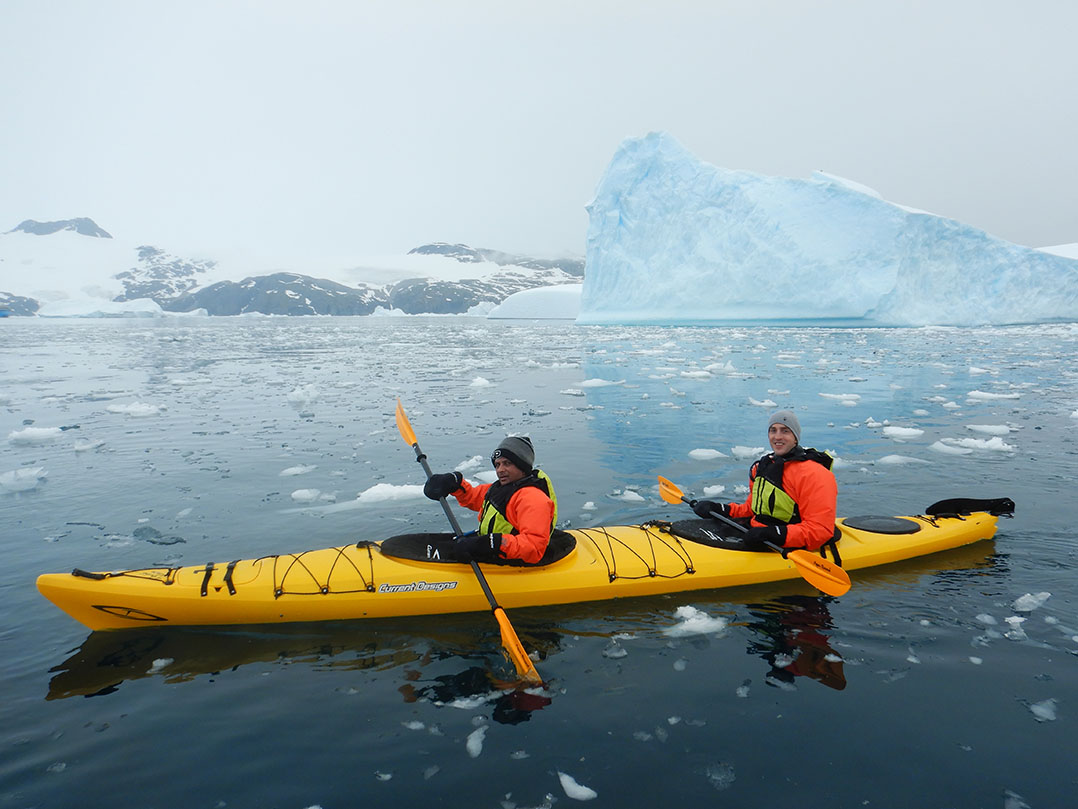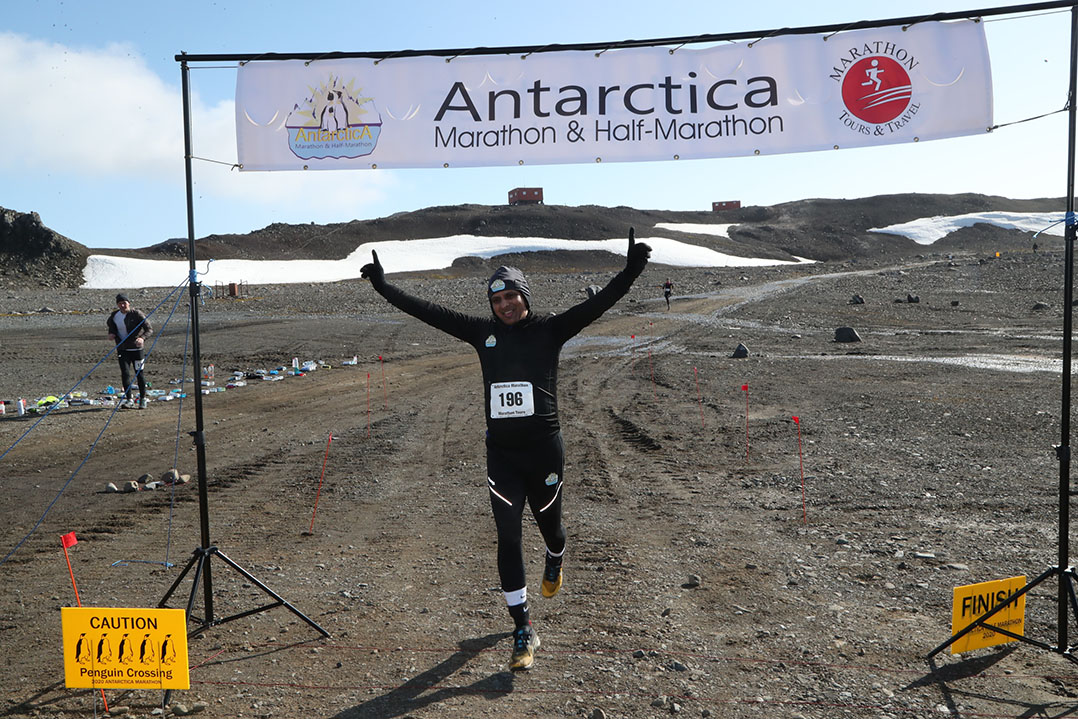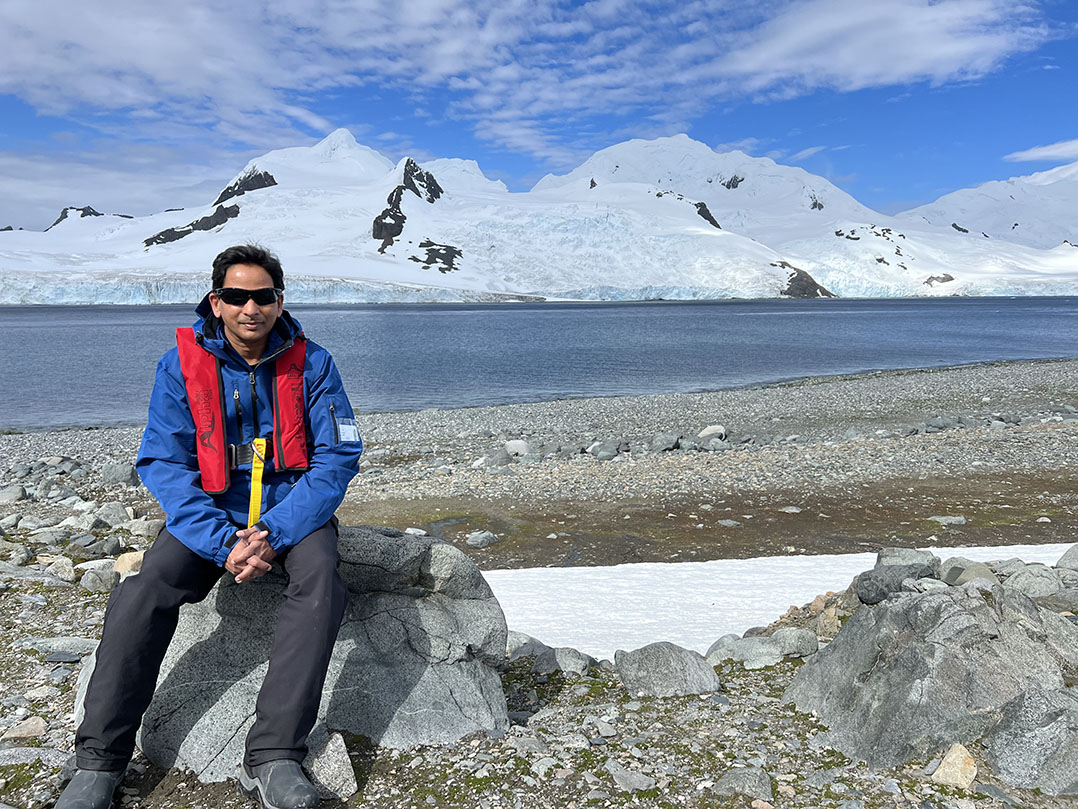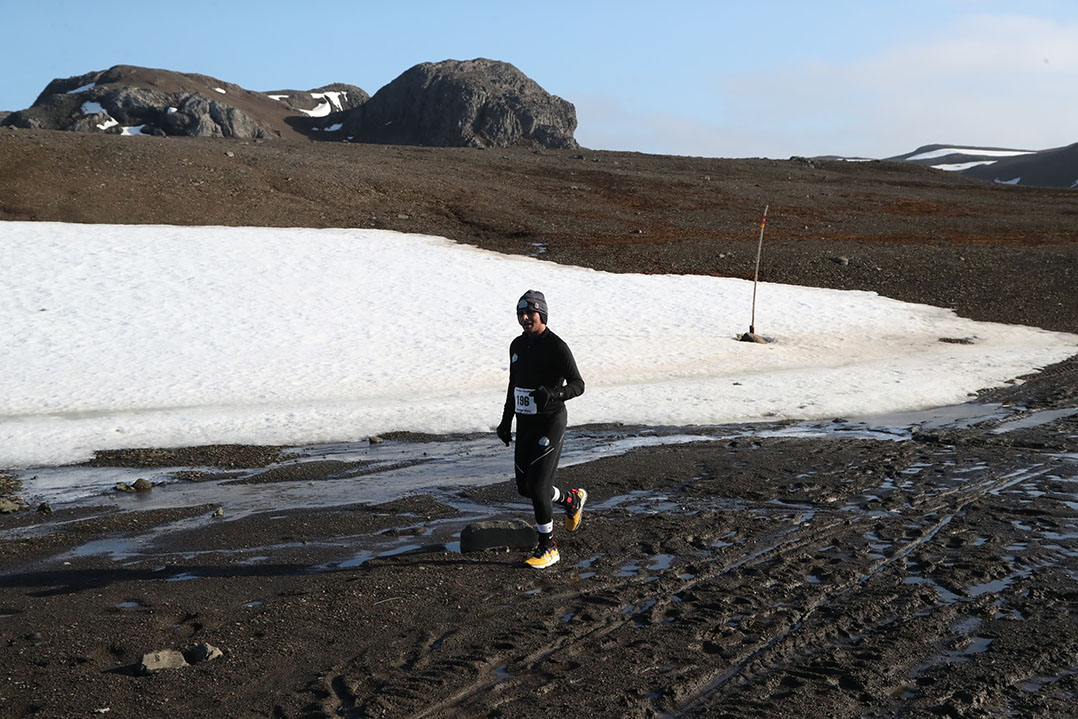For Mohan Ambaty, completing a half-marathon in Antarctica wasn’t nearly the most difficult part of his trip.
The physical challenge for the longtime runner seemed fairly routine compared to the emotional toll of frequent COVID-19 testing, precautionary quarantines and the knowledge that his quest to run a half-marathon on every continent could be deterred at any moment because of uncooperative weather or a positive test result. A few days of seasickness didn’t help, either.
But on Jan. 28, Ambaty, 53, completed the Antarctica Half Marathon on King George Island in a time of 2:26:30, finishing second in the men’s event. It was a race like no other, he said, devoid of crowds, water stations and music.
“Stepping on (Antarctica), I felt like Neil Armstrong, on a different planet,” Ambaty said. “No pollution, no noise, except you can hear the penguins.”

Pandemic disruptions
When Ambaty realized in 2018 that his new job as chief information officer at the Indiana State Dept. of Health would require hours of sitting in front of a computer screen, he decided to find a way to motivate himself to stay active and fit. So, he set a goal of running a half-marathon on every continent, completing one race each year.
Ambaty, who moved from India to Indiana in 1998, completed a half-marathon at the Great Wall of China in 2019 in 2:39:35, but his timeline was soon altered by the arrival of the COVID-19 pandemic in early 2020, which halted most international travel and canceled races worldwide. And as CIO at the state agency most involved in managing the pandemic locally, Ambaty had more pressing matters to consume his time.
But there was no rush. When Ambaty registered in 2019 to run in Antarctica, he wasn’t guaranteed a spot until 2023. However, he joined the waitlist for earlier races and learned in late November 2021 that a spot had become available to run in January, leaving him little time to train for the 13.1-mile event.
Race organizers told Ambaty to be ready to run in temperatures ranging from 35 to 25 degrees below zero, so he trained late at night or in the early morning hours to run in conditions as cold as possible.
“They said the climate can go wrong at any time, so you need to prepare for the worst, because it changes very quickly,” Ambaty said.
The weather on race day was less extreme, as it turned out, a sunny 38 degrees.

‘A very tough challenge’
By the time Ambaty returned from his journey, he had taken 18 COVID-19 tests. They were required before boarding planes, daily onboard the ship that carried him to Antarctica and at other points along the way.
Two runners were unable to compete after testing positive on the morning of the race. Others became ineligible through previous tests.
Ambaty was thankful to avoid that fate.
“It’s a very tough challenge from the COVID perspective, but the race officials and expedition team did a wonderful job,” he said.
Ambaty tested negative after the race, too, which allowed him to explore other parts of Antarctica – including by kayak, his favorite part of the trip – and South America on his way home.
Ambaty’s next race is a bit closer to home, as he plans to run in the half-marathon April 9 as part of the Carmel Marathon weekend of events. He also plans to run in the 500 Festival Mini-Marathon in May in Indianapolis. For his next international race, he wants to compete in Australia in 2023.






